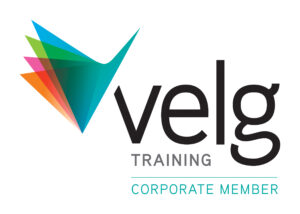Working in the construction and infrastructure industry is an incredibly rewarding job. Whether you’re a student at the beginning of your career, or an experienced worker considering a career change, you can learn everything you need to know by enrolling on a variety of training courses.
Construction training courses not only teach you the skills and knowledge needed to become competent in your given area but also equip you with the licenses needed to get your foot in the door and keep you and your employer compliant with regulations.
So, what are the four things you need to consider?
1. Real World Training Experience
When considering any training course, it’s important to assess what you want to get out of it. More than being just a ticket to work, construction training courses can set you up for success through real-world experience, for example, on a live construction site with real equipment.
A training provider that can offer a practical and hands-on approach is going to not only give you a better chance of passing the course but will also mean, when you enter the industry, you are confident, as well as competent.
Importantly, a safe and realistic training environment also complements learning the theory side of the course, as you can truly get your head around the site and equipment.
2. The Training Provider
Another thing to consider is the course provider – are they a registered training organisation (RTO)? You can confirm a company is an RTO with the peak Australian government body by searching the list of registered training organisations.
When selecting a construction training provider, you should make sure they can prove they have a first-rate understanding of your chosen industry, its challenges and requirements.
Are they an institution well-known for their successful training strategies? It’s a good sign if their trainers have spent most of their own career developing the skills and knowledge needed to train others on it, or are still actively working in the industry themselves.
3. The Course Itself (Cost and Duration)
If you have a specific license you want to achieve in mind, you will know which courses you are looking at. The next step therefore is to assess the course duration and fees which can sometimes vary between training providers. Some providers offer discounted training for large groups, so if you and your workmates are looking to upskill together you may be able to secure a better deal.
This information should be made clear on the organisation’s website, including any additional costs, but if it’s not, ensure you contact them to check the details before you enrol.
4. Course Funding
Construction industry funding can help support your training and make it more affordable for you.
Government-funded courses and training programs are available for upskilling existing workers as well as apprentices and trainees in the building and construction industry.
For example, Construction Skills Queensland funds important courses and training to make it easier for you to update your skills or the skills of your workers.
The BERT Training Fund is also an option for members of the Building Employees Redundancy Trust (BERT) who can provide funding and assistance for upskilling.
Take Charge of Your Future
Whether you’re just starting out in the construction industry, or are thinking of making a career change, getting the right training with the right training provider will set you up for success.
At Kallibr Training (RTO 32365), our modern training facilities, real equipment and dedicated trainers are here to provide a safe, realistic and supportive training environment. We have one of the biggest collections of training equipment in Australia, with everything from 150t cranes to purpose-built confined space simulators.
Our accredited training courses cover a wide range of areas from high-risk training and construction equipment training to safety training and plant operator courses.
Learn more about our courses and training facilities in Brisbane, Sydney and Melbourne here.




